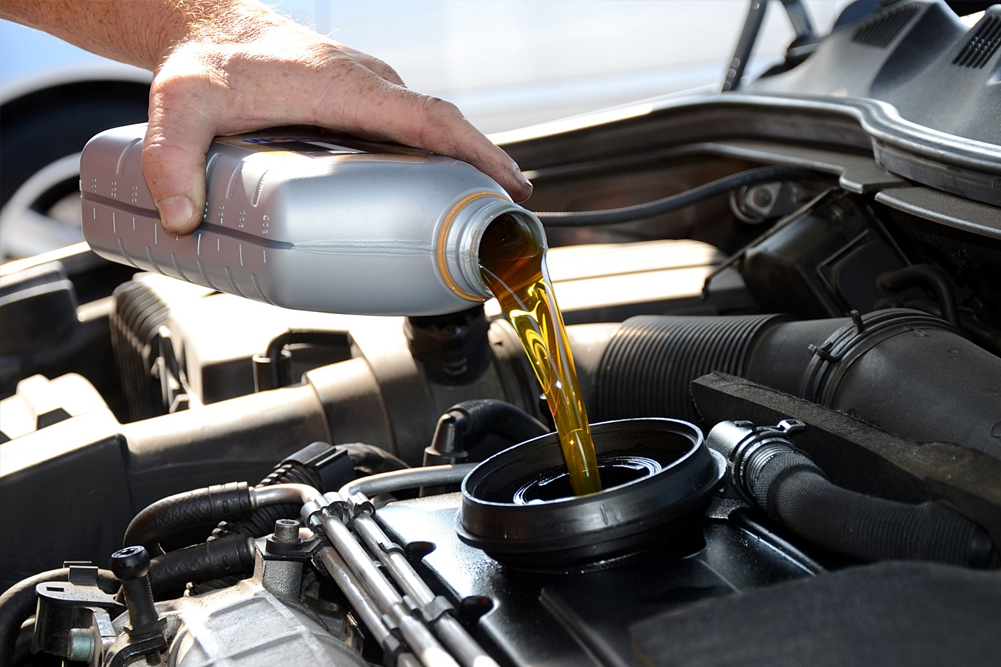The benefits of regular car oil changes are enhanced engine performance and extended lifespan. They also improve fuel efficiency and prevent costly repairs.
Maintaining your vehicle’s health is crucial for a smooth driving experience. One of the most essential maintenance tasks is regular oil changes. Fresh oil lubricates engine components, reducing friction and wear. It also helps in keeping the engine clean by removing dirt and debris.
Consistent oil changes ensure better fuel economy, saving you money at the pump. Neglecting this simple task can lead to engine overheating and potential failure. Investing in routine oil changes is an easy and effective way to protect your vehicle and ensure it runs efficiently for years.
Importance Of Car Oil Changes
Regular oil changes are crucial for your car’s longevity. They keep your engine running smoothly. Clean oil ensures every part works well. It prevents damage and costly repairs.
Engine Health
Oil lubricates the engine parts, reducing friction. Less friction means less heat. This keeps the engine cool. Fresh oil also cleans the engine. It removes dirt and debris. Clean oil prevents sludge build-up. Sludge can cause engine failure. Regular oil changes keep your engine healthy and efficient.
Preventing Wear And Tear
Old oil gets dirty and thick. Thick oil can’t lubricate well. This leads to more wear and tear. Moving parts grind against each other. This causes damage over time. Fresh oil prevents this. It keeps parts moving smoothly. This extends the life of your engine.
Summary Table
| Benefit | Explanation |
|---|---|
| Engine Health | Reduces friction, keeps engine cool, prevents sludge |
| Preventing Wear and Tear | Ensures smooth movement, reduces grinding, extends engine life |
Key Points
- Regular oil changes are essential for vehicle health.
- Clean oil reduces engine friction.
- It prevents sludge and engine failure.
- Fresh oil minimizes wear and tear.

Credit: www.jtskia.com
Enhanced Engine Performance
Regular car oil changes are crucial for maintaining your vehicle’s health. One of the key benefits is enhanced engine performance. Clean oil ensures that your engine runs smoothly, and efficiently, and lasts longer.
Smoother Operation
Fresh oil lubricates engine parts effectively. This reduces friction and wear. Old oil becomes thick and dirty. It loses its ability to lubricate properly. This can lead to increased friction and potential damage. Clean oil helps your engine run more smoothly.
Improved Fuel Efficiency
Dirty oil causes your engine to work harder. This leads to decreased fuel efficiency. Clean oil reduces the strain on engine components. As a result, your car uses fuel more efficiently. This means more miles per gallon and fewer trips to the gas station.
Consider the following benefits of improved fuel efficiency:
- Lower fuel costs
- Reduced carbon footprint
- Better overall vehicle performance
By keeping your oil clean, you enhance your engine’s performance and save money on fuel.
Increased Longevity
Regular car oil changes are crucial for maintaining your vehicle’s health. They ensure the engine runs smoothly, reducing wear and tear. This simple maintenance task can significantly extend your car’s life.
Extended Engine Life
Changing the oil regularly keeps your engine clean. Clean oil reduces friction, preventing damage. This helps the engine last longer.
Fresh oil also removes dirt and particles. These can harm the engine over time. Regular oil changes ensure your engine stays in top condition.
Reduced Repair Costs
Regular oil changes can save you money. Clean oil reduces engine wear. This means fewer costly repairs.
Dirty oil can cause major engine problems. Fixing these issues is often expensive. By keeping the oil clean, you avoid these costs.
Consider the following benefits of reduced repair costs:
- Fewer visits to the mechanic
- Lower risk of engine failure
- Extended intervals between major services
Regular car oil changes are an easy way to ensure your car’s longevity. They help keep your engine running smoothly and reduce repair costs.

Credit: www.jtskiarockhill.com
Better Mileage
Regular car oil changes are crucial for maintaining optimal engine performance. One significant benefit is better mileage. Clean oil reduces friction and ensures smoother engine operation. This leads to improved fuel efficiency.
Optimal Fuel Consumption
Dirty oil can cause various issues in your car engine. It creates more friction, which forces the engine to work harder. This extra effort results in higher fuel consumption.
Fresh oil lubricates the engine parts effectively. It allows them to move with minimal resistance. This leads to optimal fuel consumption.
Cost Savings
Better mileage means you spend less on fuel. Over time, these savings add up significantly.
Consider the following table, which shows potential annual savings:
| Miles Driven per Year | Fuel Efficiency Increase | Annual Savings |
|---|---|---|
| 10,000 | 2 MPG | $150 |
| 15,000 | 3 MPG | $250 |
| 20,000 | 4 MPG | $350 |
Regular oil changes are a simple way to keep your engine healthy. They enhance fuel efficiency and save you money in the long run.
Environmental Benefits
Regular car oil changes do more than keep your engine running smoothly. They also provide significant environmental benefits. Clean oil ensures your car runs efficiently, reducing harmful emissions. This helps to protect the environment and promotes eco-friendly practices. Below are the key environmental benefits of regular car oil changes.
Reduced Emissions
Dirty oil can cause your engine to run inefficiently. This increases the amount of harmful emissions. Regular oil changes help reduce these emissions. Clean oil allows the engine to burn fuel more effectively. This means fewer pollutants are released into the air.
- Cleaner Air: Fewer emissions mean cleaner air for everyone.
- Less Pollution: Reduced emissions contribute to less air pollution.
- Better Fuel Efficiency: Clean oil helps your car use fuel more efficiently, reducing the overall fuel consumption.
Eco-friendly Practices
Regular oil changes encourage eco-friendly practices. Many service centers now use recycled oil. This reduces waste and helps conserve natural resources. Using recycled oil is just as effective as new oil. It also has a lower environmental impact.
| Practice | Benefit |
|---|---|
| Using Recycled Oil | Reduces waste and conserves resources |
| Proper Disposal of Used Oil | Prevents soil and water contamination |
| Regular Maintenance | Increases the lifespan of your vehicle |
Proper disposal of used oil is also essential. Many service centers recycle used oil to prevent contamination. This ensures that the environment stays clean and safe. Regular maintenance increases your car’s lifespan, reducing the need for new vehicles. This, in turn, helps to conserve resources.
By changing your car’s oil regularly, you contribute to a healthier planet. You’ll enjoy better performance and help protect the environment. It’s a win-win situation for you and the earth.
Signs Your Car Needs An Oil Change
Regular oil changes keep your car running smoothly. Knowing the signs your car needs an oil change can save you money. Pay attention to these signs to keep your engine healthy.
Warning Lights
Your car’s dashboard has many lights. One important light is the oil change light. If this light comes on, it means your oil level is low. Another light to watch for is the check engine light. This light can mean many things, including low oil.
Ignoring these lights can harm your engine. Always check your oil when these lights appear. It only takes a few minutes to check your oil level.
Engine Noise
Engines need oil to run quietly. Without enough oil, the engine makes noise. You might hear knocking or rumbling sounds. These noises mean your engine parts are grinding together. This can cause serious damage if not fixed.
Changing your oil can stop these noises. Fresh oil lubricates the engine and reduces noise. Listen to your car and act quickly if you hear strange sounds.
Choosing The Right Oil
Choosing the right oil for your car is crucial. It ensures your engine runs smoothly and lasts longer. There are many factors to consider. Let’s explore some key aspects to help you decide.
Synthetic Vs. Conventional
Synthetic oil offers better performance in extreme temperatures. It provides superior protection against wear and tear. Synthetic oil also lasts longer than conventional oil. This means fewer oil changes, saving you time and money.
Conventional oil is derived from crude oil. It is less expensive than synthetic oil. However, it requires more frequent changes. Conventional oil is suitable for older vehicles with simpler engines. Choosing between synthetic and conventional oil depends on your driving habits and budget.
Manufacturer Recommendations
Always follow your car manufacturer’s oil recommendations. They know what’s best for your engine. Your owner’s manual provides specific guidelines. It lists the correct oil type and viscosity for your vehicle.
Using the recommended oil ensures optimal engine performance. It also helps maintain your car’s warranty. Ignoring manufacturer recommendations can lead to engine damage and void your warranty.
To make it easier, here’s a quick reference:
| Oil Type | Best For |
|---|---|
| Synthetic | Extreme temperatures, high-performance engines |
| Conventional | Older vehicles, simple engines |
Remember, the right oil keeps your engine healthy. It boosts performance and extends engine life. Choose wisely and enjoy a smoother ride.

Credit: www.carcility.com
Diy Vs. Professional Service
Regular car oil changes are essential for keeping your vehicle in top condition. Deciding between DIY oil changes and professional services can be challenging. Each option has its own set of benefits and drawbacks. Understanding these can help you make an informed decision.
Pros And Cons
| DIY Oil Changes | Professional Service |
|---|---|
|
|
|
|
Tools And Equipment
For a DIY oil change, having the right tools is crucial. Here is a list of essential tools and equipment:
- Oil filter wrench
- Oil drain pan
- Socket set
- Car jack and stands
- Funnel
- New oil and filter
- Gloves
Professional services have access to advanced equipment. This can make the oil change process faster and more efficient. Some specialized tools they use include:
- Hydraulic lifts
- Advanced diagnostic tools
- High-quality oil and filters
Whether you choose DIY or professional service, regular oil changes are vital. Keeping your car’s engine healthy depends on it.
Frequently Asked Questions
What Are The Benefits Of Regular Oil Changes?
Regular oil changes improve engine performance, increase fuel efficiency, and extend engine life. They also prevent costly repairs.
How Often Should Car Oil Be Changed?
Typically, change your car’s oil every 3,000 to 5,000 miles. Check your owner’s manual for specific recommendations.
Does Oil Type Affect Car Performance?
Yes, using the right oil type ensures optimal engine performance. Always use the oil grade recommended by your manufacturer.
Can Skipping Oil Changes Damage My Car?
Yes, skipping oil changes can lead to engine wear, reduced efficiency, and potential engine failure. Always adhere to the maintenance schedule.
What Happens During An Oil Change?
During an oil change, old oil is replaced, and the oil filter is changed. This keeps the engine clean and lubricated.
How Do I Know If My Car Needs An Oil Change?
Look for signs like dirty oil, engine noise, or the oil change light. Regular checks can help you stay on schedule.
Conclusion
Regular car oil changes ensure optimal engine performance. They extend your vehicle’s lifespan and improve fuel efficiency. This simple maintenance task prevents costly repairs and keeps your car running smoothly. Don’t neglect oil changes to maximize your car’s longevity and reliability.
Invest in regular oil changes for a healthier, more efficient vehicle.


